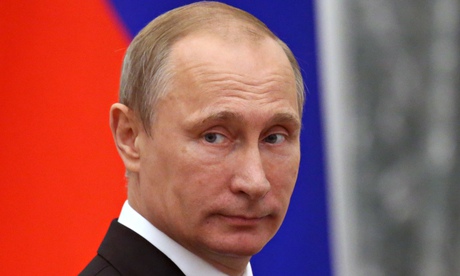
A law that comes into effect in Russia on Friday will place tighter controls on the blogosphere, one of the few remaining places where people can freely criticise the government.
The federal mass media watchdog has said the law is meant to "de-anonymise popular websites". Prominent bloggers argue it is yet another step to crack down on free expression and will be wielded against critics of the regime.
Popularly known as the "law on bloggers," the legislation requires users of any website whose posts are read by more than 3,000 people each day to publish under their real name and register with the authorities if requested. It also holds popular bloggers to the same standards as the mass media, forbidding false information and foul language, although it doesn't guarantee them the same rights. Violators could incur fines of up to 50,000 rubles (£800) and be blacklisted.
Facebook, Twitter, LiveJournal and other social media sites regulated under the new law played an instrumental role in organising the protests against president Vladimir Putin in 2011-13 and have provided a vital platform for critical voices, since most nationwide television and print media is controlled by the government.
Already, the authorities enjoy sweeping powers under a 2013 law to close down websites for advocating "extremist activities" or "participation in public events held in breach of appropriate procedures." In March, the media watchdog blocked three opposition news portals and the LiveJournal blog of opposition leader and anti-corruption activist Alexei Navalny, who specialises in exposés on the luxurious real estate owned by prominent officials, replete with documents and photographs.
Popular blogger and media entrepreneur Anton Nosik called the law on bloggers unconstitutional and said it was meant to intimidate regime critics.
"It's about creating a situation where big brother is watching you," said Nosik. "You are part of a list, you are being watched, being observed, you are being served notices and could even serve a criminal sentence if you choose to speak out."
Another prominent blogger, Leonid Kaganov, told the magazine Afisha that the legislation was yet another attempt to transfer regulating power from the judicial system to unknown officials and "bring the authorities' relationship with its citizens into a shadow realm."
Bloggers have also complained that the law's terminology is too vague, and wondered how the media watchdog could possibly hope to regulate all site users and reliably count their readers. After parliament passed the law in April, LiveJournal stopped listing the exact number of followers for bloggers with more than 2,500.
The deputy head of the media watchdog, Maxim Ksenzov, recently suggested that the legislation would be applied selectively, telling the news site Lenta.ru that: "If you post kitten pics, speak in a civilized manner and publish no classified information, you may never be required [to register], even if you have a daily audience of 1 million visitors."

